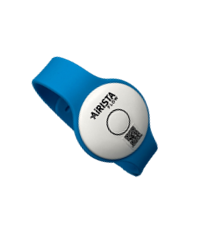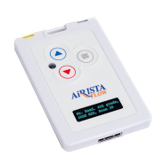An Unprecedented Industry-Wide Challenge
 People are sensing the end of the pandemic is in sight. But as complacency sets in, hospitals are once again being overrun and ICU beds are filling up. According to the CDC, there will be between 24,700 and 53,700 new COVID patients showing up at hospitals every day by the end of January. Although 62% of Americans are fully vaccinated, the transmissibility of Omicron is sending a wave of unvaccinated people to hospitals. And although the numbers are lower than a year ago, the impact on hospitals is more sever given the healthcare staffing shortages. According to Morning Consult, 18% of healthcare workers have quit since the start of the pandemic, and 12% have been laid off. And of the remaining workers, 31% have considered leaving their employer.
People are sensing the end of the pandemic is in sight. But as complacency sets in, hospitals are once again being overrun and ICU beds are filling up. According to the CDC, there will be between 24,700 and 53,700 new COVID patients showing up at hospitals every day by the end of January. Although 62% of Americans are fully vaccinated, the transmissibility of Omicron is sending a wave of unvaccinated people to hospitals. And although the numbers are lower than a year ago, the impact on hospitals is more sever given the healthcare staffing shortages. According to Morning Consult, 18% of healthcare workers have quit since the start of the pandemic, and 12% have been laid off. And of the remaining workers, 31% have considered leaving their employer.
Preventing Additional Losses Due To Staff Absenteeism
According to the American Hospital Association, healthcare staffing shortages have cost hospitals $24 billion during the pandemic. A large portion can be attributed to high salaries of traveling nurses who are needed to backfill for those heading to the exits. Many of those leaving feel poorly treated, under paid, and ignored by hospital administrations. Molly Phelps, an ER doc for 18 years told The Atlantic, “I was willing to stay and be miserable,” but her hospital’s administrators “never acknowledged what we went through,” while many of her patients “seemed to forget their humanity.” And as clinician leave, more pressure is placed on those that remain, creating a cycle of resignations. To help stem the spiral, hospitals need to retain the staff that remains.
How RTLS Devices Can Help
Hospitals are responding with a combination of financial incentives and technology approaches. RTLS devices are being deployed to help in a number of ways. Gel dispensers are being retrofitted with devices that detect when clinicians sanitize their hands. The resulting metrics can be used to improve compliance rates and reduce the spread of the virus. RTLS tags worn by staff can help maintain social distancing and provide and automated record for contact tracing. The same tags also act as emergency transponders in case a clinician is attacked. And RTLS tags can locate assets in scarce supply like ventilators and help ensure patient flow which increases patient turnover.
Which RTLS Devices Are Best for Healthcare
Traditional Wi-Fi RTLS tags have been popular for over 20 years. They take advantage of existing access points to determine location by comparing the Wi-Fi signal strengths as perceived by 3 or more access points. This method of trilateration results in several meters of accuracy (techniques like site surveys that result in “fingerprints” for each area mapped can increase Wi-Fi based accuracy, such as AiRISTA’s location engine). As Bluetooth® Low Energy finds its way into millions of devices, including access points, the lower cost and longer battery life make is a popular technology. Simple BLE tags are used for hand hygiene and social distancing solutions using proximity in which 2 tags gauge the distance from each other based on the signal strength between them.
Adding a button to the tag facilitates workflows that indicate when a room might be ready for a new patient, for example. Tags can also include sensors to relay information about temperature, humidity and even motion. The more sophisticated tags have simple displays to provide real time messages among team members. These tags are useful when a nurse is attacked and relays their position to nearby staff with the pull of a switch.
How AiRISTA can Help
 Staffing shortages in healthcare is a multifaceted problem. Although technology solutions are no silver bullet for healthcare staff burnout, RTLS solutions can help keep staff healthy and increase efficiency. With more than 20 years of healthcare experience, AiRISTA RTLS solutions support a range of use cases delivered on a single platform. AiRISTA simplifies RTLS deployments to deliver results fast. Contact us today to discuss your specific challenges. salesinfo@airista.com
Staffing shortages in healthcare is a multifaceted problem. Although technology solutions are no silver bullet for healthcare staff burnout, RTLS solutions can help keep staff healthy and increase efficiency. With more than 20 years of healthcare experience, AiRISTA RTLS solutions support a range of use cases delivered on a single platform. AiRISTA simplifies RTLS deployments to deliver results fast. Contact us today to discuss your specific challenges. salesinfo@airista.com





